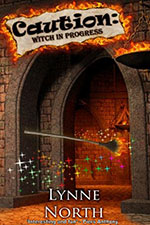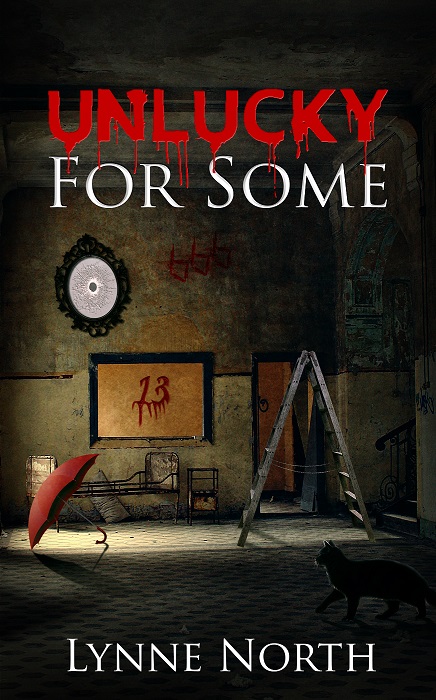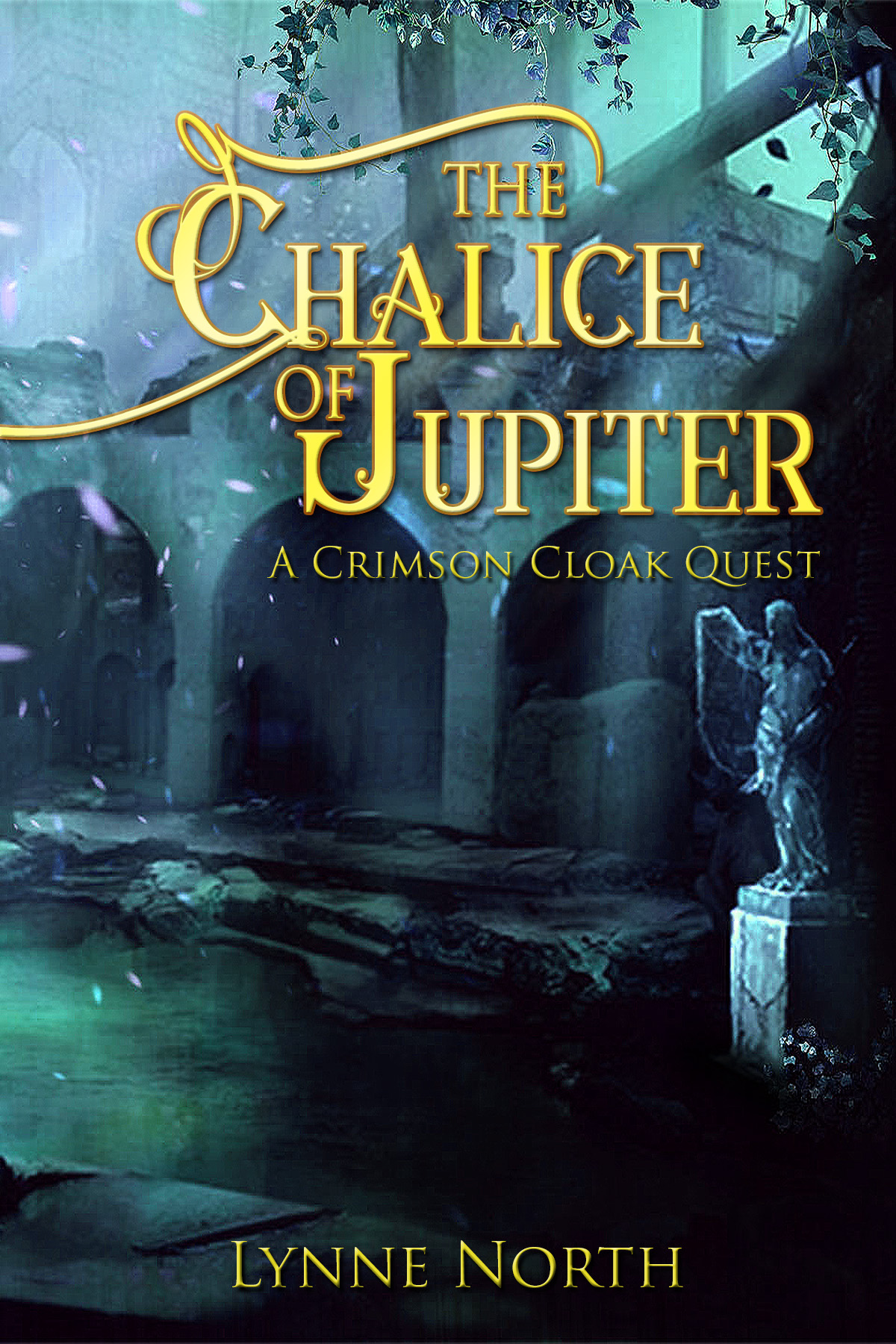EASTER LORE
Easter is called a moveable feast because the date changes every year. Easter Sunday can fall on any date from 22 March to 25 April. The reason for this variation in the date of Easter is based on the lunar calendar (moon) rather than our more well-known solar one. Easter always falls on the first Sunday following the full Moon after the 21st March.
Symbolism has always played an important part in festivals and celebrations, and Easter is no exception to this rule. Before Christianity replaced pagan festivals with its own, the fourth month of the Anglo-Saxon year was said to have been named after Eostre, the Goddess of Spring. Her festival was a celebration of fertility and rebirth. Eostre was seen to give life to the world, and many of the rituals observed were associated with renewal. The sacred beast of the Goddess was the hare, a prolific breeder who came to be associated in myth with the laying of eggs in the fields at Easter. The Goddesses name has come to label the Christian Spring festival of Easter, and her symbol, the hare, has survived in the laughable guise of the Easter Bunny. Eostre’s primary symbols were the eggs, signs of fertility and new life. It comes as no surprise therefore that the egg is associated with many aspects of Spring and Easter.
Eostre’s eggs have now given way to the dyed, decorated and chocolate eggs that we all know to be a part of the Easter celebrations. It is believed the practice of decorating eggs spread to Europe from the Middle Eastern Spring festivals during the time of the Crusades. Eggs were dyed and decorated earlier by the Ancient Egyptians and Persians who began the tradition of exchanging them with friends, as did the Greeks and Romans later. It was in Mesopotamia however that Christians first gave eggs to friends at Easter to remind them of Christ’s resurrection. The church adopted this practice, and it became customary to give decorated eggs to friends and servants at the end of Lent on Easter Sunday.
Most Easter traditions can be traced back to pagan traditions, including the wearing of new clothes, and Spring cleaning. Easter was seen as a time of renewal, and the Easter festivals were chosen as the time to shed the old and don the new.
Even the eating of hot cross buns on Good Friday originated long before Christianity. In pagan times, the bun represented the moon, and the cross was used to divide it into the Moon’s four quarters, or phases. For Christians, the cross serves as a reminder of the crucifixion of Jesus.
For all those who adhere to the Christian meanings of Easter, Good Friday recalls Jesus’ death on the cross. The origin of the word “good” has been lost, though some claim it is a corruption of the word ‘God’ and that the early Christians called this day ‘God’s Friday.’ Others claim ‘good’ refers to the blessings of humanity that arose as a result of Jesus’ execution.
Easter Sunday commemorates Jesus’ resurrection. In the early church, converts were baptized into church membership on this day after long periods of instruction. This tradition continues today in some churches.
Whatever you believe about the origins of Easter, enjoy the long weekend, and don’t eat too many eggs!
TAURUS
As the second sign of the zodiac, Taurus represents the second stage in the evolution of man and his place in the universe. The first thing man uses are his physical senses. What he can see, touch, and physically hold represents the reality of his position. It is why the celestial heritage of Taureans is to conserve physical resources and possessively cling to people whom they regard as their own. Their strongest desire is for personal security. Broken promises or the betrayal of others are threats to this security. Their reaction to such personal affronts is likely to be bitter, and those who inflict such abuses will not be given another chance. Disappointed Taureans can behave in a manner totally against their own best interests. They may completely retreat from the world, or, go in the opposite direction and become promiscuous. Whatever direction is taken, they may end up sacrificing the meaningful, enduring relationships they really need to feel emotionally secure.
Taureans are stubborn and impervious to changes not of their own making. However, they are able to accomplish things in life because of their tenacity in sticking to projects in which others may have long since lost patience or stamina. The astrological symbol for Taurus is the Bull and indeed, the stubborn bull-headed nature of the Taurean personality can be extremely formidable to those who have the unfortunate experience of coming up against it. On the positive side, their quiet strength and determination inspires others to trust them. Because they dislike being unable to rely on others, they are usually very dependable themselves. Taureans are loving and patient when trying to accomplish what they think is worthwhile and when dealing with people they care about. As a rule, they do not enjoy surprises or spontaneous changes. They are far more comfortable when given sufficient time to prepare for things and allowed to follow their planned agenda.
Taureans react to what they experience by assessing its possible worth. That is, before they take physical action, before they sort out their emotional involvement, and before they reason it out intellectually, they ascertain what tangible advantages are to be gained from the experience. What appears too abstract or vague fails to attract more than their passing interest. They need a definite purpose in what they do and in relationships they form. Because they don’t want to be unnecessarily burdened, they willingly rid themselves of worn out items, but only if they cannot find any other way to make use of them.
Venus, planet of beauty and pleasure, rules Taurus, which means that by nature, people born with Sun in Taurus are tactile and sensuous, seekers of personal comfort and physical pleasure. By design however, they are pragmatic with an appreciative eye for both monetary value as well as aesthetic beauty. They are lovers of nature and natural things. Their harmony in life is tied to reality and the material world, but sometimes they get carried away with personal acquisitions. When they go too far a field they tend to either accumulate wealth and never use it, or recklessly squander it without improving the quality or enjoyment of their lives. As a result of their addiction to personal pleasure and comfort, Taureans can be very lazy as well as very vulnerable to the unpleasant consequences that invariably result from overindulging in rich food and other physical pleasures. Their natural cautiousness saves them from making mistakes, but it can also prevent them from taking advantage of valuable opportunities.
As a rule, Taureans are physically strong and solidly built. Even those who are not overweight may be physically denser per pound of body weight. Many of them favour weight lifting or other body-building routines as a way to keep in shape. They enjoy participating in sports that require strength and endurance. They usually like to potter around the garden, and readily engage in other outdoor activities such as picnics, hikes, and trips to botanical gardens or a zoo. They love music and art and may have considerable talent in these areas. They often have a pleasant speaking or singing voice. Though Taureans tend to be rather subdued, they have a lively sense of humour, and enjoy socialising.
Taurus colours are brown, russet, and turquoise. Vulnerable parts of the body are the neck, throat, shoulders, and upper torso. Stiff necks, sore throats, and earaches are common Taurean complaints. The emerald, a variety of the mineral beryl and as costly as a diamond, is the Taurus birthstone. The emerald’s rich green colour is suitably Taurean since it is the colour of money, green pastures, and serenity. The emerald has a six-sided geometric form. Six is the number assigned to Venus which in turn, is the planetary ruler of Taurus. Flowers for Taurus are the rose (red), daisy, lily, and daffodil.
The Origins of Mother’s Day
As with most of our celebrations, Mother’s Day can be traced back to Greek and Roman times. The Greeks used their annual spring festival to honour Rhea, the wife of Cronus and the mother of many heroes of Greek myth. The Roman Spring festival of Hilaria was held to celebrate Cybele, a mother goddess. Offerings, games and parades began on the Ides of March and lasted for three days. Those Romans knew how to celebrate…
In early Christianity, the fourth Sunday of Lent was chosen to honour the Mother of Christ, and in England this celebration was soon extended to celebrate all mothers and renamed ‘Mothering Sunday.’ Servants, apprentices and others who worked away from home were encouraged by their employers to go home to see their mothers on this day, taking small gifts with them.
Strangely, the custom of celebrating Mother’s Day almost died out altogether in the 19th Century, but after World War II American servicemen brought back the custom to our shores, and it was soon seen as a good business enterprise to follow.
Mother’s Day today is celebrated in many countries, and is seen as the opportunity to thank mothers for their love and support throughout the year. The tradition involves bringing cards, gifts and flowers, and has become much commercialised.
What needs to be remembered is that mothers are there every day, not just on Mothering Sunday. They are the world’s very special people, and deserve love and appreciation every day they spend in our lives.
Zac's Destiny released on Kindle
Zac’s Destiny has now been released on Kindle in the UK and USA with a new cover and at a rock-bottom introductory price. Please see links on the right in the ‘My Books’ section.
Zac’s Destiny is a children’s sword and sorcery fantasy novel aimed at the nine years of age to mid teen market.
Zac is a fifteen year old stable boy whose life is turned upside down when he finds himself in the midst of demons, magic and a perilous quest. The land around Albemerle castle is under attack, and the only hope of survival for Zac and the people he loves is to find the great wizard, Aldric.
Men have already died trying.
Strange dreams mark the beginning of Zac’s life changing events. Armed with a magic sword, ring and crystal, he sets out with a group of soldiers to find Aldric. Demon attack almost ends Zac’s quest as soon as it begins.
Zac refuses to give up, and soon finds himself accompanied by unusual travelling companions. Many dangers bar their way. Only Zac’s determination and the unexpected help he receives can make it possible to find and free Aldric, and return for the final battle to save the land…
ARIES
As the first sign of the zodiac, Aries represents the first stage in the evolution of man and his place in the universe. The raw energy of life itself, which is the first step in being part of the universe, is evident in the character and make-up of Aries people. Babies think of themselves as the centre of everyone else’s universe. As they grow older, they learn they are not the centre but part of a family group. It is the karmic responsibility of the Aries-born to accept the idea that they are not the centre of the universe but part of the larger social order of all men. Aries personalities who do not develop this kind of maturity are demanding and infantile in their behaviour. They want what they want, when they want it. The vital life force that is their celestial heritage can either be used to inspire others as well as themselves, or it can be turned inward to reflect only their own selfish needs, and as a result, they fail to evolve as individuals.
Aries people are doers. They set out to accomplish things and are determined to succeed one way or another. The astrological symbol for Aries is the Ram and, considering the sheer force of energy and enthusiasm by which they accomplish their goals, it is not off the mark to suggest that they “ram” their way to success. They must, however learn the difference between being confidently aggressive; a responsible “take-charge person” on whom others rely to get things moving, and being rudely aggressive; a “know-it-all” who is insensitive to the feelings as well as the wisdom of others.
Aries individuals react in a physical way to everything they experience in life. That is, before they assess the practicality or worth of what they are doing, before they sort out their true emotions, and, before they take time to reason things out intellectually, their tendency is to shoot first and ask questions later. Their passionate nature is inspiring and flattering to others, but unless impatience and rash behaviour are curbed, their unbridled enthusiasm backfires when they lose interest just as quickly as they gained it. Theirs is the astrological sign of the soldier but in their haste, they forget the practicality of being adequately armed before rushing headlong into physical or verbal combat. They quickly forget frustration and anger. Since theirs is essentially a generous nature, their selfishness is usually a result of carelessness rather than intentional unkindness.
Active, fiery Mars rules Aries and indeed, Aries people are high-spirited, energetic individuals ready to try anything at least once. Courageous, optimistic, and friendly, they are lively participants in the everyday bustle of life, maintaining a frantic pace others find difficult to match. Constant physical activity works off excess energy, and its vitalising influence is important to their intellectual and creative endeavours. It is usually the energetic Aries who is willing to start projects others would be afraid to tackle. However, it is also Aries who often fails to finish things when too many details demand attention or they simply lose interest. In spite of the physical energy associated with Aries, they are not above using the inability of others to keep up with them as an excuse for their own idleness. If they expect others to provide them with constant stimulation and are unwilling to find their own diversions, they become lazy. Cut off from physical activity, they become depressed, unproductive, and overweight.
They are eager athletes and generous players. They enjoy the challenge of a tough contest, but they can be so stimulated that they become too aggressive. Aries rules guns and weapons, so it isn’t surprising that many Aries individuals enjoy hunting. Combative by nature, they also enjoy boxing, wrestling, and most team sports. They are apt to be mechanically inclined and adept at arts and crafts, typing, working with machinery, playing musical instruments, or performing magic tricks. They have a tendency though to allow their enthusiasm to exceed their actual ability. Before taking something apart, they don’t stop to wonder if they can put it back together again.
Aries colours are red and white. Vulnerable parts of the body are the head and face. As a sign of this celestial association, many Aries individuals are born with a birth mark on their head or face. Headaches, black eyes, nose bleeds, and insect bites are common Aries complaints. The birthstone for Aries is the diamond. The tremendous heat and pressure that nature exerts in turning carbon into hard, brilliant diamonds represent the strength and physical force of the Aries-born. Flowers for Aries include the poppy (red), geraniums, honeysuckle, and hollyhocks.
KINDLE
Gertie Gets it Right (eventually) has now been released on Kindle in the UK and USA with a new cover and at a rock-bottom introductory price. Opening sales are promising and Gertie is already at number 47 in the UK Kindle humour ranks! Please see links on the right in the ‘My Books’ section.
Gertie Gets it Right (eventually) is a children’s humorous fantasy novel aimed at the eight years of age to young teen market. It also has a growing fan base of adult readers!
Gertie Grimthorpe comes from a long line of witches. Unfortunately, she hasn’t really got the hang of it. Being blonde haired, blue eyed and free of warts isn’t much of an advantage.
Try as she might, Gertie’s spells fall flat. She manages to give her bat-headed umbrella the ability to talk, but then wishes she hadn’t when all he does is complain and insult people. Even finding an owl to be her Familiar doesn’t help. Then again, he is extremely shortsighted…
Gertie is sent to The Academy to improve her spell casting skills. She soon has a best friend in the form of Bertha Bobbit, a big girl, with a matching appetite.
Add to that a Moat Monster with a flatulence problem, the weirdest array of witch’s Familiars possible, and a warlock determined to ruin Gertie’s chances of success, and the story unfolds.
Not to mention the demon…
PISCES
As the twelfth sign of the zodiac, Pisces represents the twelfth and final stage in the evolution of man and his place in the universe. Here, the desire is to use all that has been learned and assimilated in order to gain perfection; of man as an individual and humanity as a whole. This perfection leads man to his rightful place in the universe. Though not all Pisceans occupy their time with such lofty aspirations as attaining their rightful place in the universe, the notion of perfection is a strong factor in their personality. They find it difficult to deal with people and situations that do not live up to their idealised images. It isn’t that they can’t see things clearly; they just don’t want to accept things as they really are. Seeking greater perfection than the real world is capable of producing, they often turn to religion or other spiritual and philosophical disciplines.
Pisceans readily adapt to change. This trait is strength because it is a survival mechanism, and a weakness because it makes them vulnerable to the demands and influence of other people. In spite of their sensitive personality and delicate physical constitutions, most Pisceans are survivors. Their adaptability allows them to outlast those who may be much stronger. Because they so readily identify with the feelings of others, and willingly adapt themselves to different people and changing circumstances, they risk the exploitation or loss of their own needs, ideas, and talent. The opposite side of the coin is that adaptability also allows Pisceans to gain personal power over those they understand so well and turn it to their own advantage. The fish is the astrological symbol for Pisces. The fish is pictured as a double figure seen to swim in either direction. This represents the ultimate Piscean choice; either to be strong and overcome weakness inherent in their sensitive nature, or to become the victim of this acute vulnerability.
Pisceans react emotionally to everything they experience in life. Before they take physical action, before they sort out the practicality of what they are doing, and before they reason things out intellectually, they give in to their feelings. Compassionate and fair-minded, they are not at all afraid to bend unbreakable rules if the situation demands a more humane approach. They make excellent judges, sensitive administrators, and inspirational teachers. Their surplus of emotions implies an addictive nature, and thus it is necessary to avoid habit-forming drugs and other substances. To maintain their emotional equilibrium, they need a private spot or at least a private time for daily retreat and relaxation. The most creatively stimulating and soothing environment for Pisceans is near water, preferably the ocean.
The modern ruler of Pisces is Neptune, planet of the spiritual and sensitive qualities in man. Ancient astrologers assigned Pisces Jupiter, a planet also associated with spirituality as well as thirst for knowledge and understanding. These planets represent similar traits and both of them influence Piscean personalities. They are idealistic, sensitive, and love to play martyr. They are often shy and would much rather impersonate someone else than be themselves. That’s why so many are actors, artists, writers, and dreamers. Their association with elusive Neptune makes it hard to predict how Pisceans will develop. Some of them are neat and well organised, while others become slovenly and careless. Personal habits are often a direct reflection of emotional reactions to their environment. Their imaginations are limitless, an ability that makes them successful writers of fiction or turns them into pathological liars. Unique ability to understand the abstract can make them gifted mathematicians and theorists, or it can put them so out of touch with reality that they make no sense at all.
As if to directly confront their own vulnerability many Pisceans are daredevils and risk-takers becoming race car drivers, pilots, explorers, and hunters. Their emotional nature can make them compulsive eaters who face a lifelong battle of the bulge. Sports and physical fitness routines are a good way for them to keep in shape as well as reduce their emotional stress. Horseback riding, dancing, skating, swimming or sailing are favoured activities.
Piscean colours are pale green, purple, rose, and gray-blue. Vulnerable parts of the body are the feet and lymphatic system. Swelling, allergic reaction to drugs, and sore feet are common complaints, but their emotional nature can also make them vulnerable to psychosomatic illness. The Piscean birthstone is the aquamarine. The sea-coloured aquamarine becomes invisible when submerged in water. This is an appropriate representation of the shy Pisceans who often wish they could disappear as easily. Flowers for Pisces are the orchid, lilac, wisteria, water lily (lotus), poppy (white), and pansy.
Valentine's Day
St Valentine’s Day has its origins in a number of different legends that have been passed down to us through the ages. One of the earliest popular symbols of Valentine’s Day is Cupid, the Roman god of love, represented by a young boy with a bow and arrow.
One of the first mentions of ‘Valentine’ was in Ancient Roman times when everyone was expected to worship the many Roman Gods. Valentine, a Christian priest, was thrown into prison because of his beliefs. On February 14th he was put to death, not only for his Christianity, but because he was said to perform a miracle by enabling the blind jailor’s daughter to see again. The night before he was executed, he wrote the girl a farewell letter, signing it “From Your Valentine.”
The other Valentine known to the Romans lived, and died, during the reign of Emperor Claudius II. Claudius believed he was having trouble recruiting young men into his army because they did not want to leave their wives and sweethearts. Accordingly, he cancelled all engagements and marriages throughout Rome. Saint Valentine, a priest of Rome at the time, continued to marry couples in secret. He was eventually caught and executed on February 14th. It sounds like it was a popular day for execution in Rome.
On a brighter note in Ancient Rome, February 14th was a holiday in honour of Juno, Queen of the Gods, and Goddess of women and marriage. The Feast of Lupercalia was held on the next day. The lives of young boys and girls were strictly separate. However, one of the customs held on the eve of the festival of Lupercalia was for boys to draw a girl’s name placed in a jar to be their partners for the duration of the festival. Sometimes the couple remained together for the whole year and even fell in love and married.
In AD 496 Saint Pope Gelasius I declared February 14 as “Valentine’s Day”. Although it has never been an official holiday (more’s the pity.) The date was marked by sending poems and simple gifts such as flowers, and there was often a social gathering or a ball.
Valentines Day gained in popularity during the Middle Ages when lovers either spoke or sang of their feelings. Written Valentines became popular at the end of the 15th Century. The first handmade Valentine cards appeared in the 16th century but by the early 20th century even elaborate cards with lace and ribbon were created by machine.
Many traditions are linked to Valentines Day. As examples, in the Middle Ages young men and women drew names from a bowl to see who their Valentines would be, while in Wales Love Spoons were carved and given as gifts. Another game involved thinking of five or six names of boys or girls you would like to marry. The player had to twist the stem of an apple while reciting the names until the stem fell off! The idea was that the name being recited when this happened would be the one the player would marry. I suppose the solution was to give an almighty twist when reciting your favourite’s name…
However you spend Valentine’s Day, let it be with someone you love!
AQUARIUS
As the eleventh sign of the zodiac, Aquarius represents the eleventh stage in the evolution of man and his place in the universe. In Aquarius, the individuality of man so carefully nurtured in Leo, now becomes part of the greater spectrum of society as a whole. Capricorn sets up the structure and rules of society, and Aquarius takes on the role of making the organisations of society function as the people-oriented institutions they were intended to be. Aquarians are the original organisers of the zodiac. Their societal orientation, loyalty, fairness, and objective nature are reasons why they tend to attract many friends and acquaintances in life. Though they are not above wanting to live well, many Aquarians are more interested in people than they are in amassing great wealth or taking on the responsibilities that invariably accompany such a life style. When they cannot afford some luxury, they rationalise why they didn’t need it in the first place.
Aquarians are stubborn and resist changing their opinions or accepting new ideas they do not like or with which they do not agree. Big changes in life are accepted as a challenge, but small changes that throw off their plans are not tolerated very well. The astrological symbol for Aquarius is the figure of a man pouring water. The water is seen as mankind’s collective consciousness. It depicts Aquarians as disseminators of the spirit of humanity. Many Aquarians, in tune with their celestial heritage, are idealists who champion the highest principles to which humanity can aspire. However they are also extremely independent thinkers. When confronted with authoritarian demands or dogmatic principles to which they do not subscribe, they rebel. They may hesitate to take the initiative at times, but once they decide a situation or idea is worthwhile, they become involved and aggressive in pushing it forward. They don’t mind being asked to do something but they resent being told to do it. Those who want to gain their favour will help share the work load without being asked.
Aquarians react to everything they experience in life with an intellectual orientation. Before they take physical action, before they assess the practical worth of something, and before they sort out their true emotions, they try to visualise it objectively as a kind of mental exercise. In relationships, their intellectual approach makes them appear interested but not particularly passionate or possessive. It does not necessarily mean they really lack passion. When they do focus their feelings, their passion can be as intense as it is inspirational.
The modern ruler of Aquarius is Uranus, planet of the unorthodox and eclectic mentality of mankind. The ancient ruler of Aquarius is Saturn, planet of restriction and structure. Such different characteristics seem to directly contradict one another, but a close look at the Aquarian personality shows that both planets co-exist in a strangely compatible way. Aquarians demonstrate association with Uranus by being unpredictable. Saturn’s influence gives them stability. The two influences generally mean that when Aquarians suddenly change course, or do something unpredictable, they are not likely to be acting on a whim or a bet but for some very practical or advantageous reason. They favour the unique as well as the traditional. Sometimes they are either so involved with the past (history and antiques) or so tuned in to the future (spaceships and neon clothes) they lose track of the present. Exhibiting the stability of Saturn, they may live unvaried, even boring lives; feeling very comfortable and secure in such an unchanging, stable environment. Sooner or later however, they are apt to encounter circumstances that make it hard for them to know what they will be doing next. They often adopt life styles and ideas that are counter to current trends. The odd and unique fascinate them, and they are rarely caught off guard by abnormal situations and strange people.
Aquarians are good eaters but may not care what’s on the menu. Most of them are indifferent cooks. As long as they can participate with a partner, or as part of a team, they are enthusiastic about sports and, as a result, may not have trouble keeping physically fit. When left on their own however, they become lazy and reluctant to engage in what to them is a lonely series of exercises with which they quickly become bored. Athletics, camping, ballooning, tennis, swimming, and squash are some of their favourite activities. Science and engineering, international finance, writing, music, psychology or social work are areas of special interest to Aquarians.
Aquarian colours are silver, aqua, and purple and the more electric shades of pink and blue. Vulnerable parts of the body are the shins, ankles, and circulatory system. Cramps, allergies, sudden illness and freak accidents are common Aquarian complaints, though they may also suffer from various nervous disorders. The birthstone for Aquarius is amethyst. This gem is believed to confer stability and mental poise on those who wear it. Flowers for Aquarians are the more unusual blossoms and include the gladioli, tiger lily, trillium, bird of paradise, and jack-in-the-pulpit.
Zodiac signs personality profiles
As we are now in a new year, I will be producing an astrological profile for each Sun sign throughout the months of 2011. As the period assigned to Aquarius is rapidly approaching, this will be my first zodiac sign, followed next month by Pisces, and so on. Hope you enjoy the articles!











